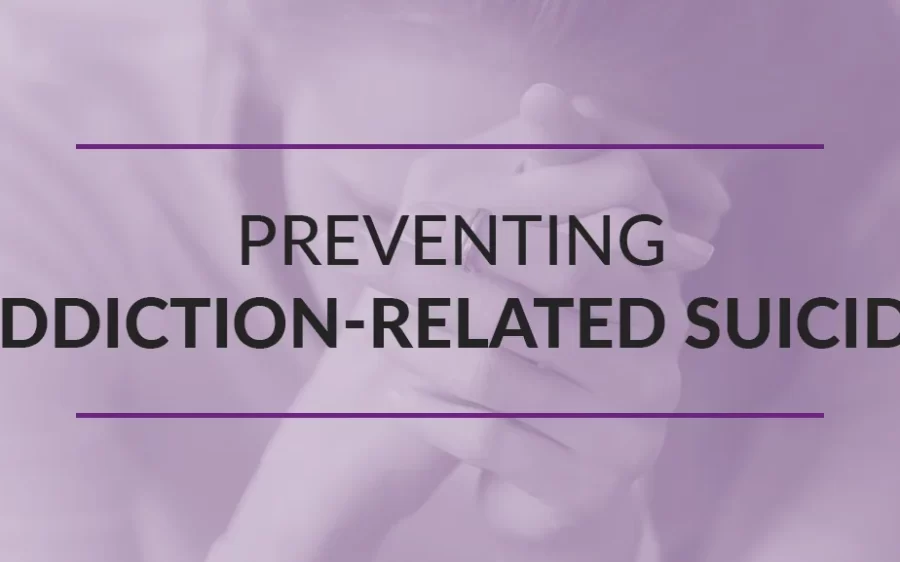
Knowing someone who is struggling with addiction can be nerve-wracking, especially if you know their substance abuse is getting worse. As addiction progresses, many people feel trapped and begin to believe that suicide is the only way out. Suicides related to addiction are a heartbreaking outcome, but one that can sometimes be avoidable by learning more about the associated causes and signs.
Suicide is the 10th leading cause of death in the United States, and people struggling with addiction are more likely to commit suicide. Research has revealed the following suicide hazard ratios associated with drug use.
What gives drug use such a strong influence over suicide risk? The exact mechanisms are unknown, but the answer may lie in the connection between addiction and mental health disorders. Approximately half of people with a mental illness also have a substance use disorder (SUD) at some point in their lives, and vice versa.
The connection is even more prevalent when it comes to "serious mental illness" (SMI), defined as having a diagnosable disorder that severely disrupts one or more necessary life activities. About one in four people with SMI also struggle with an SUD. People with a mental illness are at a significantly higher risk of suicide, although it is impossible to quantify its exact influence on that risk.
Two of the primary reasons people with addiction may consider or attempt suicide are feeling hopeless and feeling alone or rejected. If a person dependent on drugs or alcohol finds themselves compulsively making bad decisions, it can start to feel like there is no way out of the cycle of substance abuse. As addiction progresses and a person begins to drink or use to avoid the adverse effects of withdrawal, they may feel like suicide is an escape from what they see as an unfixable situation.
Addiction also typically involves isolation, whether self-imposed or born from rejection. Someone may feel like they have no place in the world and that no one would care if they died. Mental health disorders often worsen feelings of hopelessness and create even more loneliness, making it imperative for people with co-occurring disorders to receive dual-diagnosis treatment.
It can be challenging to determine whether someone is having suicidal thoughts or is seriously considering suicide. Recognizing these 11 signs is a crucial step in suicide prevention strategies. Take action if the person is:
The warning signs above can be subtle, such as making offhanded jokes or comments, or can indicate clear and present danger. If you believe someone is at immediate risk, don't leave the person alone. Call the National Suicide Prevention Lifeline at 800-273-8255 at any time for assistance.
f the person is not in crisis, one essential suicide prevention strategy is to speak up and offer your help. Many people hesitate to open up a serious conversation about suicide signs because they're not sure the person will go through with it, and they don't want to have an awkward talk for what might be no reason.
It's critical to take any sign of suicidal thoughts seriously, especially if the person is struggling with drug or alcohol abuse. Addiction can make behavior extremely unpredictable, so you can't afford to ignore any signs.
Let the person know you care about them and are willing to help, whether it's sharing mental health resources or helping them enroll in an addiction treatment program. Even something as simple as providing a listening ear can help bring someone back from the brink. Here are three tips for early suicide intervention.
If you know someone has had suicidal thoughts in the past, it's essential to get them to talk about their feelings now and then. Ask about how life is going and how it's making them feel.
People who open up about their suicidal thoughts, only to have others accuse them of attention-seeking behavior, will likely shut down and not speak about it to you again, thereby increasing their feelings of isolation and overall suicide risk.
Do what you can to promote healthy choices that help your loved one feel their best. Invite them over for a homemade dinner, be their exercise buddy or hang out with them to help ensure adequate social interaction.
Being there for someone can reduce the risk of suicide, and doing any of the things mentioned above can also increase the chance of your loved one getting the help they need for their addiction.
Unfortunately, some people who struggle with addiction do ultimately end their lives. When that happens, the people left behind must learn to cope with their grief in the situation. Here are three tips that can help people process grief when a loved one commits suicide.
Addiction-related suicide is preventable when a person receives treatment for the addiction. Diamond House Detox provides safe environments and expert care for each patient, with individualized addiction treatment plans tailored to each person's unique needs.
If you or someone you care about is struggling with addiction, Diamond House Detox is ready to provide the tools necessary to build a life without the shadow of substance abuse. To learn more about our treatment programs and how we can help, call 800-205-6107, or contact us online.
This content was medically reviewed by Vicky Magobet PMHNP-BC, on January 9th, 2020.